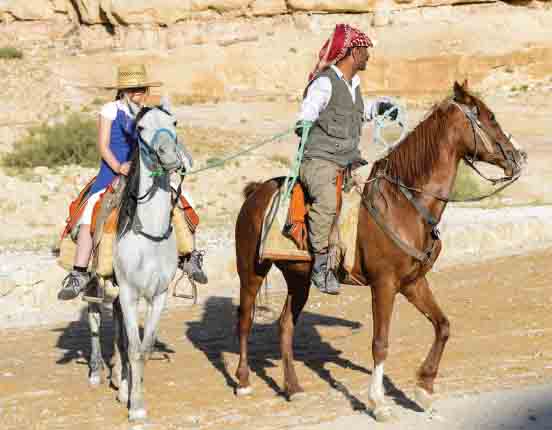Tourism provides employment for millions of people around the world. As an industry it can act as a tool for development, as long as the actions of tourists don’t damage the values and culture of host communities
When we think of tourism, what comes to mind for many of us are postcard-worthy images of sunlit tropical beaches and famous landmarks. What we don’t usually see, much less reflect on, is the millions of people behind these images – the people whose lives are touched everyday by this global sector that moves more than a billion people across the world each year.
One of these people is Sandra Perang from South Africa. At a very young age, Sandra had to leave school to work in a farm with poor living and working conditions just to support her family.
“Then I heard there were job opportunities at Bushmans Kloof Wilderness Reserve and Nature Retreat,” she says. “I started as a scullery worker. As soon as the opportunity arose, I applied for the breakfast chef position. From there, I grew within myself by leaps and bounds. Today, I am a sous chef, and I am so proud.”
Sandra is just one example out of the millions whose life has been positively transformed by tourism. Few of us are aware of tourism’s far-reaching developmental impact on lives all over the world. In fact, each time we travel, use local transport at a destination or buy products from a local market, we contribute to a long value chain that creates jobs, provides sustainable livelihoods, empowers local communities, and ultimately ushers in new opportunities for a better future.
Such a worldwide impact is a manifestation of tourism’s rapid and record-breaking growth over the past six decades. Indeed, tourism has come a long way from being primarily a leisure activity that was the realm of the elite. Back in 1950, a mere 25 million people travelled the globe over the course of the year, mainly to and from the traditional destinations of Europe and North America. In 2013, the number of international tourists reached a record 1.087 billion, with emerging and developing economies counted as some of the fastest growing tourism regions in the world.
Today, tourism is one of the biggest and most dynamic economic sectors in both developed and emerging countries, accounting for nine per cent of the global GDP, 30 per cent of total services exports and creating, directly and indirectly, one in 11 jobs worldwide. If responsibly planned and managed, tourism’s fundamental nature makes it a strong contributor to advancing sustainable development – prompting economic growth, social inclusion, cultural understanding and environmental protection.
Tourism’s capacity to change peoples’ lives by empowering communities is the focus of the 2014 World Tourism Day celebration. Held every 27 September as the international observance day for tourism, World Tourism Day is an opportunity to highlight tourism’s role in society and the way can it help address some of the most pressing challenges facing us today, such as unemployment, social inequality and climate change. This year’s theme, Tourism and Community Development, brings to the forefront the potential that tourism has to promote new socio-economic opportunities and better livelihoods for communities around the world, while highlighting the role that community engagement has in sustainable development.
As tourism is a people-based economic activity built on social interaction, it can only thrive if it engages the local population by contributing to social values, such as participation, education and enhanced local governance. At the same time, there can be no real tourism development if such development damages the values and the culture of host communities in any way or if the benefits generated by the tourism sector do not trickle down to community level. The UN World Tourism Organization Global Code of Ethics for Tourism says: “Local populations should be associated with tourism activities and share equitably in the economic, social and cultural benefits they generate.” As we approach the 2015 deadline for the Millennium Development Goals and prepare to embrace the new Sustainable Development Goals, tourism represents an opportunity to further advance economic, social and environmental sustainability. Empowering individuals and communities around the world through tourism can be a fundamental step towards these goals.
To close with Sandra Penang’s words: “Life is what you make of it, but if you don’t have an opportunity, then life could only be what it is. Through hard work and dedication I have become something in life.”






